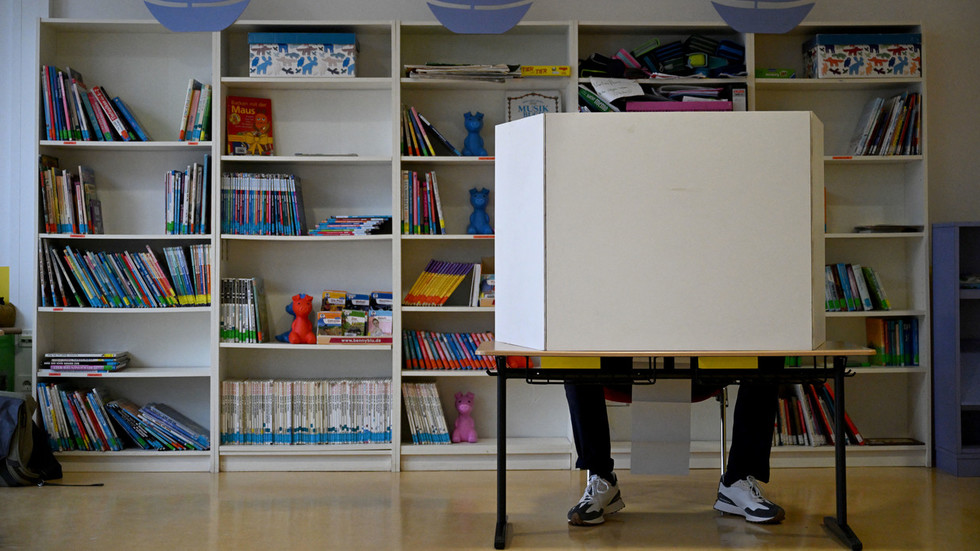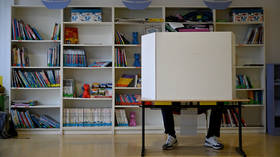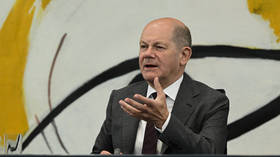
Chancellor Olaf Scholz’s Social Democrats have suffered resounding defeats in Hesse and Bavaria

A voter sits in a voting box at a polling station in Schwalbach am Taunus, Germany on October 8, 2023. © Kirill Kudryavstev / AFP
The ruling Social Democrats (SPD) have lost elections in Germany’s states of Hesse and Bavaria on Sunday, as Chancellor Olaf Scholz remains dogged by low approval ratings.
In Hesse, the country’s financial hub, former chancellor Angela Merkel’s Christian Democratic Union (CDU) is projected to win 34.6% of the votes, according to the forecast by broadcaster ARD. The Social Democrats are at 15.1% – a more than four-point decrease from 2018.
CDU’s sister party the Christian Social Union (CSU), which has governed Bavaria since the 1950s, is projected to receive 36.6% (37.2% in 2018), while the Social Democrats are expected to get only 8.1% (9.7% in 2018). Germany’s second-largest state in terms of population, Bavaria was a large economy and is a home to many industrial companies.

Read more
SPD co-leader Lars Klingbeil acknowledged that the results were “two defeats” for his party. “There were many crises in recent years that have contributed to the situation being the way it is,” he added.
Meanwhile, the right-wing Alternative for Germany (AfD) party came in second in Hesse (18.5%) and Bavaria (15.7%), improving their results compared to the last election in both states by more than five points. The party is known for pushing for tighter restrictions on migration and has been critical of Germany’s ties to NATO and Berlin’s decision to supply weapons to Ukraine.
Scholz’s cabinet has been attacked for high inflation and energy price hikes, as well as policies aimed at transitioning towards a green economy. The chancellor was heckled and booed at several campaign events, in one of which he was called a “warmonger” by angry attendees.
The approval of the government is at its lowest level since Scholz took office in December 2021, according to the ARD DeutschlandTrend poll, which showed that four out of five Germans were unhappy with his work.




